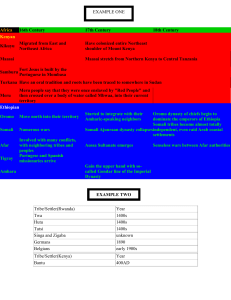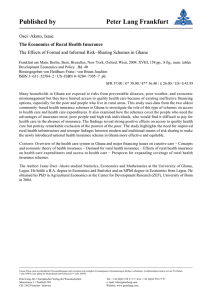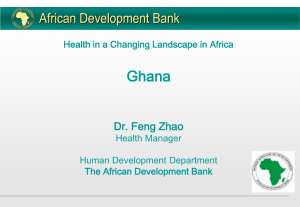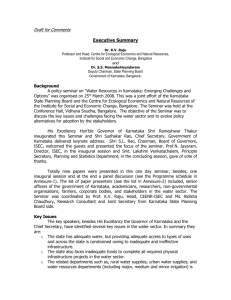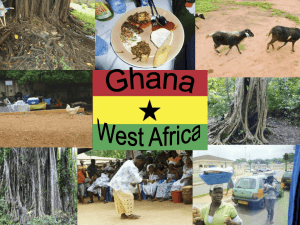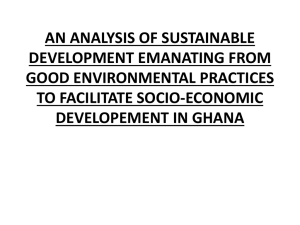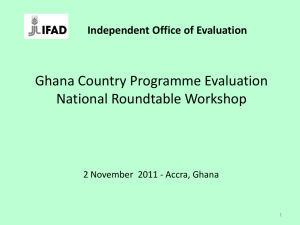here
advertisement
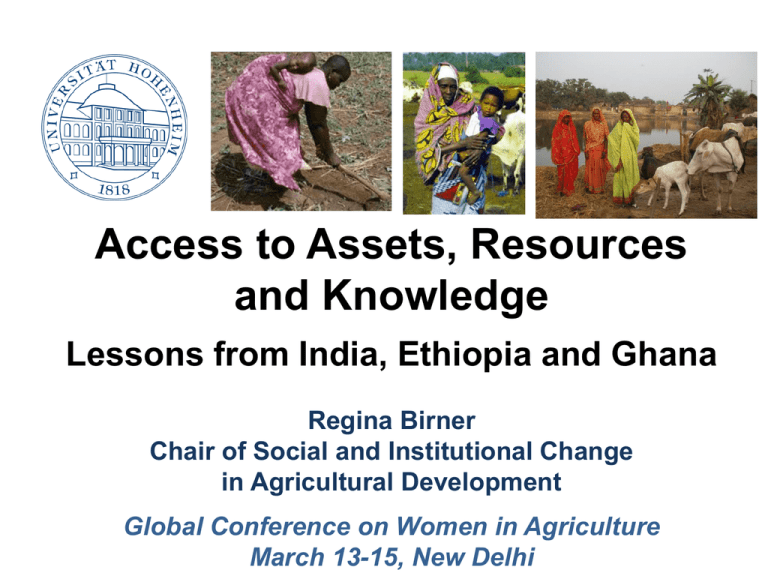
Access to Assets, Resources and Knowledge Lessons from India, Ethiopia and Ghana Regina Birner Chair of Social and Institutional Change in Agricultural Development Global Conference on Women in Agriculture March 13-15, New Delhi Overview • Lessons from a study on rural service provision in India, Ghana and Ethiopia • Key question – How to improve the provision of rural services to women? • Type of services – Agricultural extension – Rural water supply • Approach – Surveys of male and female household members, service providers and elected officials – in India with TISS & ISEC http://siteresources.worldbank.org/INTARD/Resources/gender_and_gov_in_rural_services.pdf What are the key challenges? • Why do the poor receive poor services? And why do poor women in rural areas receive particularly poor services? • Triple challenge – Market failure – especially regarding knowledge services • No incentives for pPrivate service providers have no incen • Well-known economic reasons, such as public good nature – State failure: Services in rural areas difficult to supervise – Community failure: Elite capture and social exclusion • Fourth challenge: Perception bias: “Women don’t farm.” Routes of accountability and strategies to make services gender-sensitive Political Parties Local Political Representatives Community-Based Organizations Household Members Public Sector Service Providers NGO / Private service providers Services Source: World Bank and IFPRI (2010), based on World Bank (2004) Strategy: Quota for women in local councils Example: India, Karnataka • Potential – Policy is enforced: Women have a “seat at the table” of political decision-making - Goal in its own right! • Not realized without quota (Ghana, Ethiopia) • Challenge – Female representation in Gram Panchayats does not necessarily result in better service provision outcomes. – Example: Public Works Program in Karnataka • Gram panchayat council members have to bargain for the resources to be spent in the village they represent • Villages represented by women from scheduled castes get significantly fewer resources – Policy implication: Increase women’s bargaining power! Strategy: Increase female frontline staff Example: Extension services 100 100 Analysis shows: Female extension agents in Ghana more effective in reaching female farmers! 91 90 85 80 70 60 50 40 30 20 10 0 Male staff 15 9 Female staff 0 India Ghana Ethiopia ISEC / ISSER / EEPRI - IFPRISurveys …however, overall access of women to extension rather low (Ghana) (Percent respondents in contact with agent during the past year) 16% 14% 12% 12.3% 11.7% 10.9% 10% 8% 6% 4% 2.1% 1.8% 2% 1.4% 0.0% 0% Forest Zone Transition Zone Male-Headed Households Female Spouses Page 7 0.0% 0.5% Savannah Zone Female-Headed Households ISSER-IFPRI Survey, 2008 Access to extension and livestock services in Karnataka (Percent households with contract during past year) ISEC-IFPRI Survey, 2006 Possible reason for higher access: Service provision by dairy cooperatives Strategy: Community-based organizations Challenge: Women in leadership positions 100100 100 Karnataka 90 80 70 60 50 Female chairperson 40 Female secretary 30 30 20 10 0 16 11 0 0 5 SC/ST Chairperson 10 3 4 6 Farmers' Dairy Water user Women Selfcooperative cooperative group Help Group Page 9 Lessons learnt • Different strategies to make service provision more genderresponsive – Need to find “Best Fit” for each country! • Increasing the participation of women in local councils – Goal in its own right – political voice! – Does not automatically translate into better service outcomes • Making public administration more gender-responsive – Increasing share of female frontline service providers can be very effective. – Often neglected; gap between rhetoric and reality • Example: Second Administrative Reform Commission • Promoting women in community-based organizations – Important route to accountability – Key is to ensure that women have voice!


